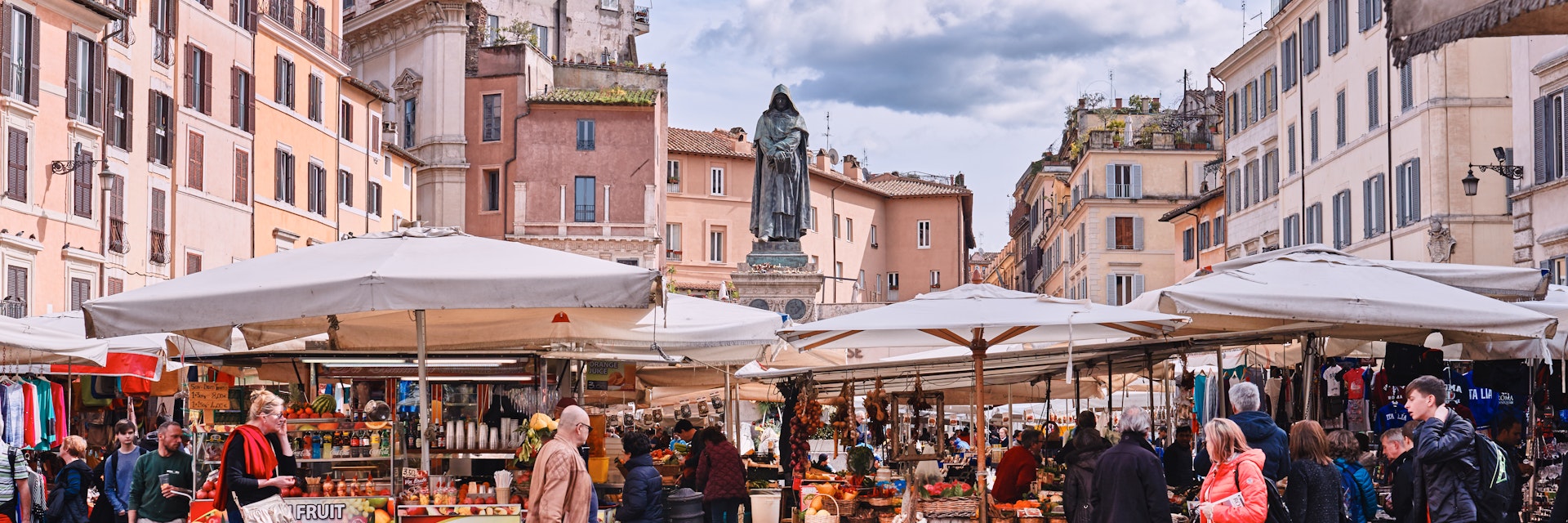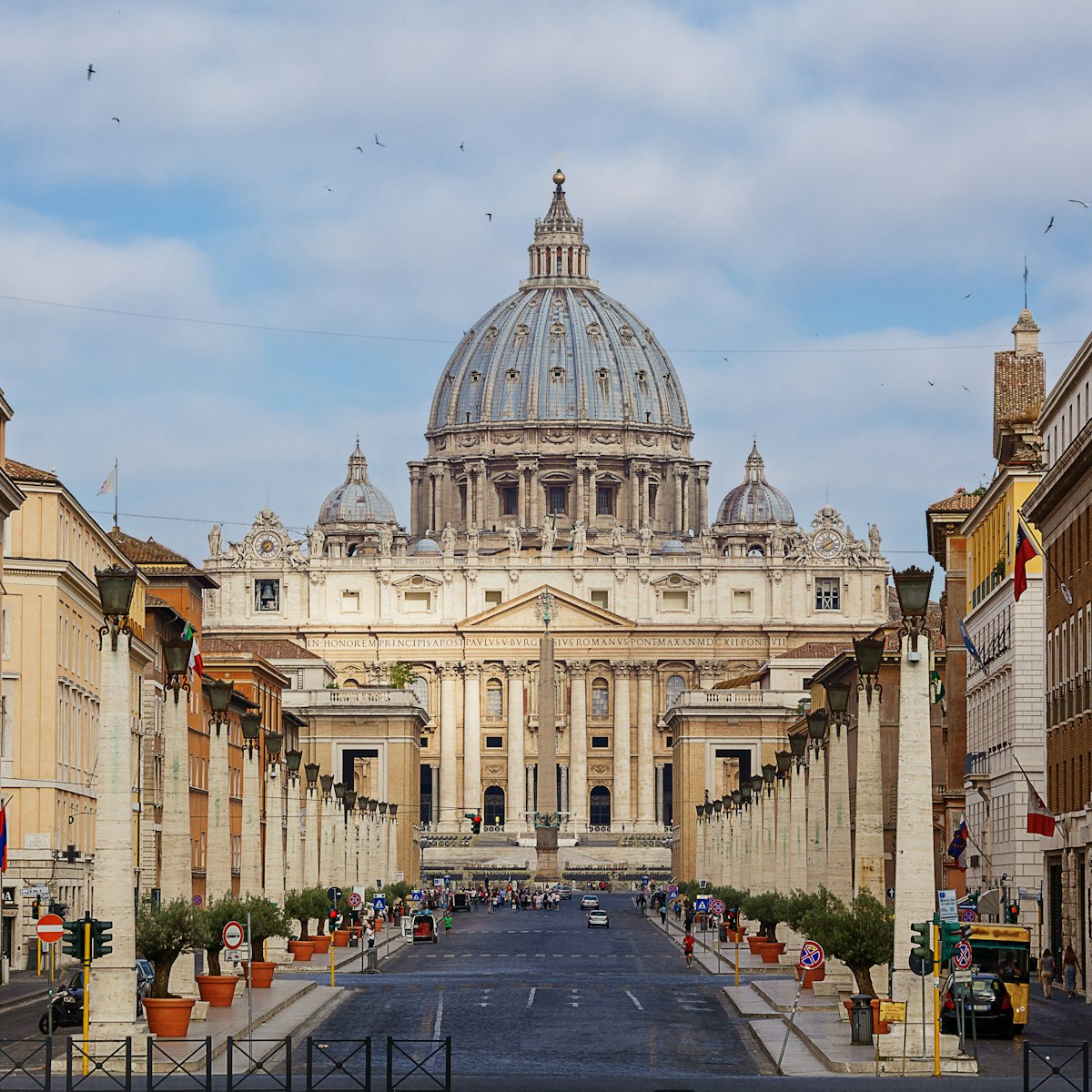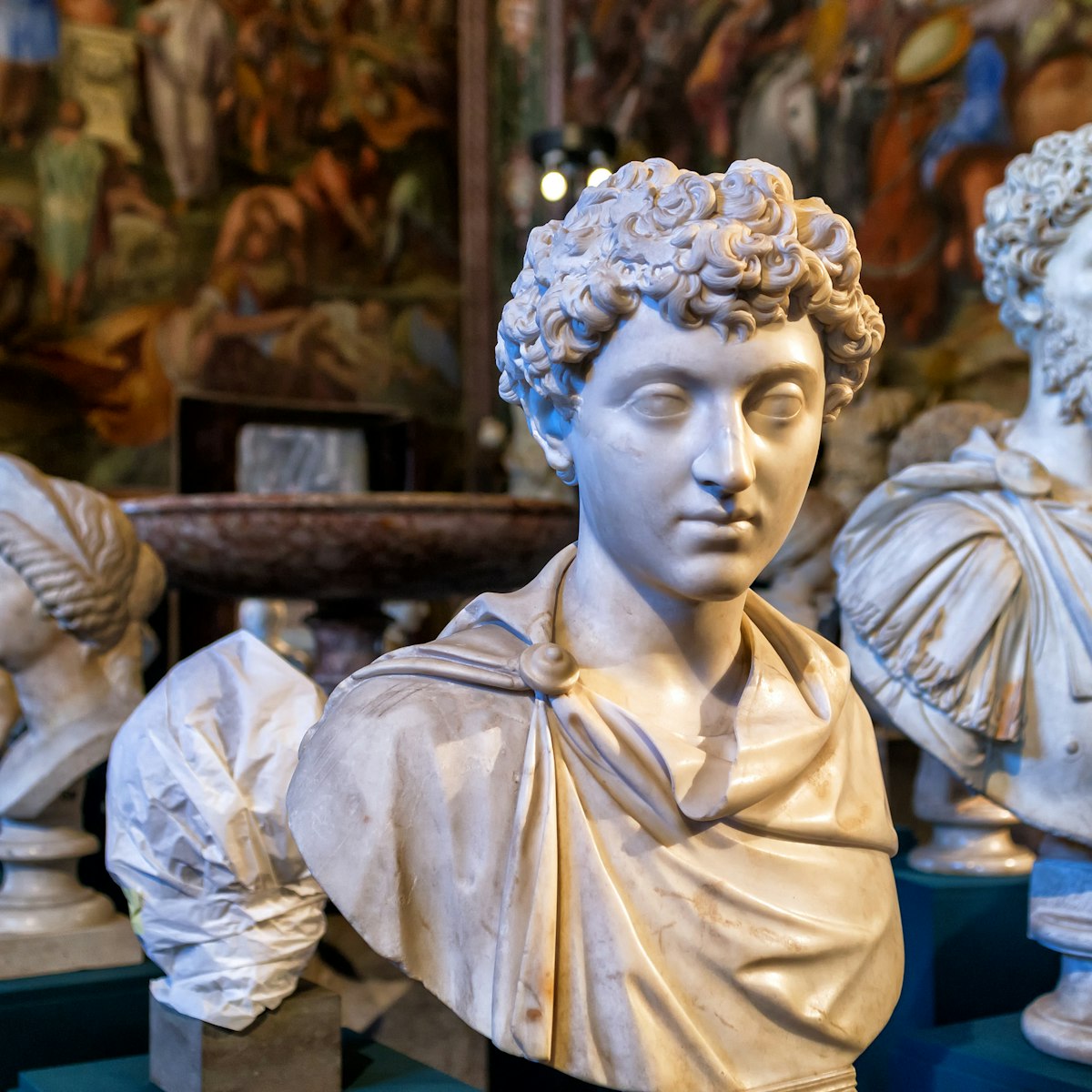Colorful and always busy, Il Campo is a major focus of Roman life: by day it hosts one of the city's best-known markets; by night its bars and restaurants do a brisk trade. The piazza's poetic name (Field of Flowers) is a reference to the open meadow that stood here before the square was laid out in the mid-15th century.
The market runs every day excluding Sundays from 7am to 2pm and while souvenir stalls have now replaced many of the fruit and vegetable stands Campo de’ Fiori is still worth visiting to immerse yourself in the lively atmosphere.
History
For centuries the square was the site of public executions. It was here that philosopher Giordano Bruno was burned for heresy in 1600, now marked by a sinister statue of the hooded monk, created by Ettore Ferrari in 1889.
Close to the western end of the square you may also notice a circular fountain. While Rome definitely boasts more impressive fountains, this has a fun history – Giacomo della Porta designed the monument in 1590 to adorn the piazza, but its decorative purpose was quickly forgotten by market vendors who began using its waters to wash the produce. Unable to stop the pragmatic merchants, the city decided to cover it with a stone lid in 1622 – an action that resulted in Romans nicknaming the fountain “terrina” due to its resemblance to a soup tureen. The fountain was removed to make space for Giordano Bruno’s statue; the current monument is a 19th-century replica of Della Porta’s design.
Two important Renaissance palaces are just around the corner from Campo de’ Fiori: Palazzo Farnese, now housing the French Embassy, and the Palazzo della Cancelleria, hosting a permanent exhibition dedicated to Leonardo da Vinci’s inventions.
Nearby bars and restaurants
Craft beer lovers can quench their thirst at Open Baladin, the pub of the Piedmontese brewery with the same name where 40 beers on tap – including the signature “Zucca” pumpkin ale – are available to try. A more intimate but equally hoppy atmosphere is found in MyAle in Via dei Cappellari, where craft brews are served on the side of charcuterie boards and stuffed focaccias.
Talking about focaccia, the historic Forno Campo de’ Fiori sees people queue for its “white pizza” filled with mortadella, while Antico Forno Roscioli is somewhat of an institution when it comes to the quintessentially Roman “pizza rossa.”









